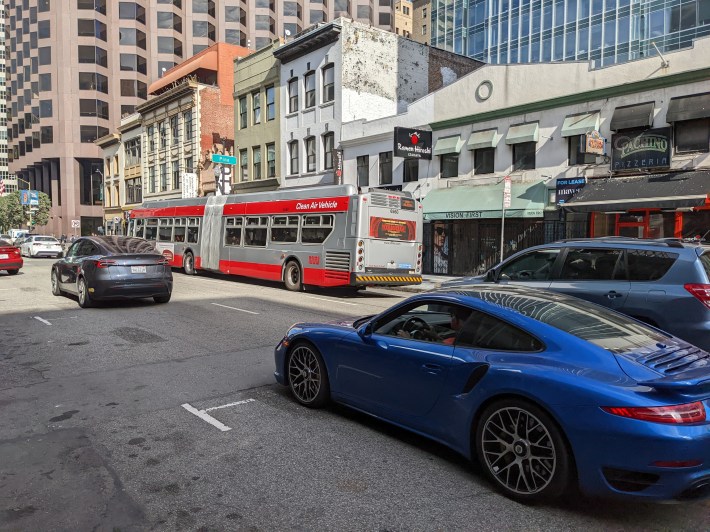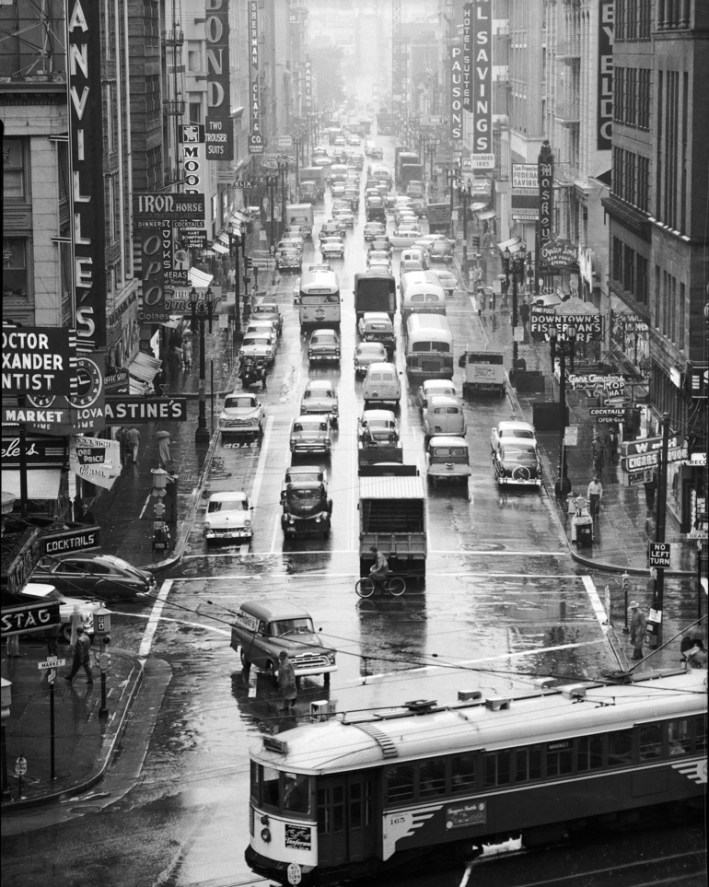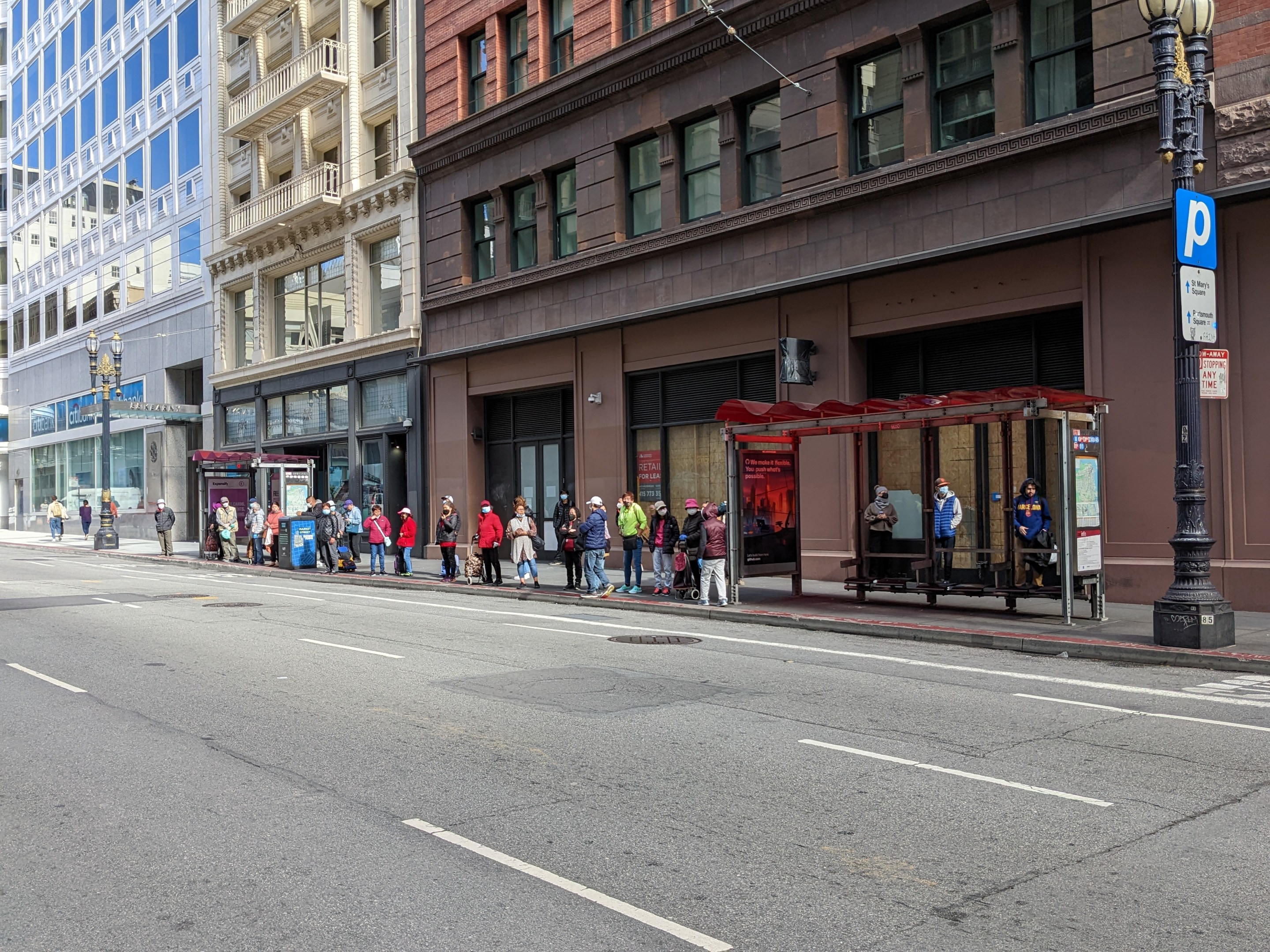The photo above shows a typical scene along Kearny Street, one of the busiest corridors in San Francisco’s District 3. Kearny Street sits at the confluence of downtown’s rich transit network and serves as a gateway into Chinatown, North Beach, and Fisherman’s Wharf. This is why it's unforgivable that such an important transit route is designed to prioritize all five lanes for drivers of private automobiles.
Years of delay, deflection, and dereliction of political leadership are to blame. Former District 3 Supervisor Julie Christensen acted swiftly when she was appointed into office, commissioning a Kearny Street Multimodal plan that would be “aimed at the full length of Kearny Street between Market Street and Broadway, with the goals of studying safety improvements for people walking and biking and transit performance improvements.” However, this plan evaporated when Supervisor Aaron Peskin took office, as he altered the focus to only a few intersections. Those improvements have been welcome, but they are no excuse for forgetting the transformative opportunity of improving all of Kearny.
This inaction has consequences. Kearny Street has the dubious honor of being on the city’s “High Injury Network Map.” This means the city has recognized Kearny Street as one of the most dangerous roads in all of San Francisco. To let this street continue to be a known danger is irresponsible.
The timing for a redesign is right. If we wish to encourage downtown workers to return, we need to give them safe routes by bicycle and reliable routes by bus. Small businesses along the stretch are struggling, and could use the revenue bump that safer streets have been shown, time after time, to provide.

Many street re-designs today confront us with space constraints. We’re forced to wrestle difficult decisions: For example, how will removing a travel lane impact traffic? Should we choose wider sidewalks or wider bike lanes? Kearny Street presents us with a rare scenario where we don’t have to choose. With 5 lanes to work with, there’s room for everyone. We can deliver safety for pedestrians, speed up bus routes, protect those on bikes, and yes, continue to provide more than adequate space for private vehicles to travel.

Kearny Street is a significant opportunity to deliver on our city’s economic, climate, and safety goals. Even more, it can improve transit connections to a corner of the city that is notoriously hard to reach. It’s well past time to improve Kearny Street.
***
Danny Sauter is a nonprofit director who lives in North Beach. He sits on the board of SF Bicycle Coalition and North Beach Neighbors. He ran for District 3 Supervisor in 2020.






